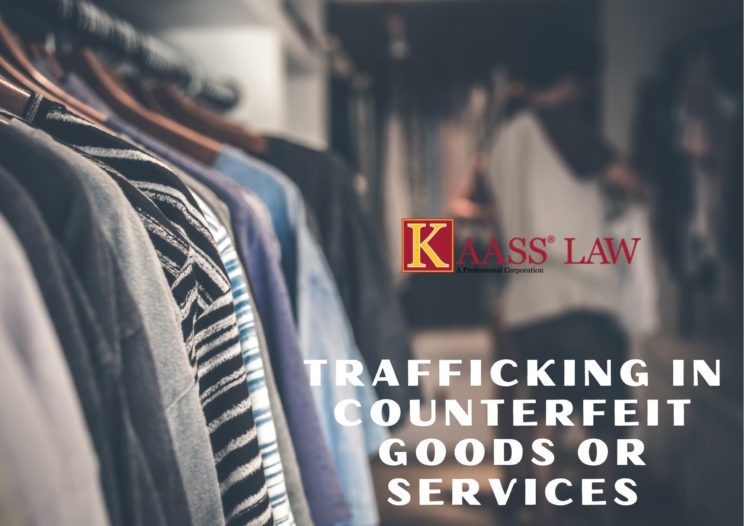Trafficking in Counterfeit Goods or Services 18 USC Section 2320
According to Trafficking in Counterfeit Goods or Services law 18 USC Section 2320, it is prohibited to knowingly and willfully perform, attempt, or conspire to perform any of acts listed below.
- traffic in goods or services and knowingly and willfully use a counterfeit mark on or in connection with such goods or services;
- traffic in stickers, labels, badges, wrappers, emblems, medallions, charms, boxes, containers, cans, hangtags, documentation, cases, or packaging of any type or nature, knowing that a counterfeit mark has been applied thereto, the use of which is likely to cause confusion, to cause mistake
- traffic in goods or services knowing that product is a counterfeit military good or service the use, malfunction, or failure of which is likely to cause death or serious bodily injury, impairment of combat operations, the disclosure of classified information or other significant harm to a combat operation, a member of the Armed Forces, or to national security
- traffic in a counterfeit drug.
Elements of Crimes Involved With Trafficking in Counterfeit Goods or Services
The prosecution must prove the following elements beyond a reasonable doubt for convicting the defendant of federal counterfeiting:
- Defendant trafficked, attempted to traffic, or conspired to traffic in services, goods or drugs;
- Defendant counterfeit the goods, services or drugs from those lawfully created by the trademark owner of these goods, services, or drugs;
- Defendant was aware the goods, services or drugs were counterfeit
- Defendant intended for the goods, services, or l drugs to be illegally passed as original, and be distributed as such.
Defenses to Federal Counterfeiting Charges
- The product was not counterfeit
In case the good, service, or drug was original and the attached trademark was genuine but was repackaged or altered after it was bought or distributed from the manufacturer, the defendant can’t be found guilty under 18 USC Section 2320.
- The defendant didn’t know that the product was counterfeit
This can be a valid defense in case the defendant can prove that he had a reasonable belief that the good, service or drug that he was selling was genuine.
Penalties for Trafficking in Goods and Services Under 18 USC Section 2320
- Up to ten years in federal prison
- A fine of up to $2 million
In case the defendant caused serious bodily injury he will face:
- Up to twenty years in federal prison
- A fine of up to $5 million
For second or subsequent offense for federal counterfeiting the defendant will face:
- Up to twenty years in federal prison
- A fine of up to $5 million
In case the defendant’s action caused another person’s death he will face:
- From 25 years to life in federal prison.
In case the defendant is convicted of counterfeiting drugs or military goods or services he will face:
- Up to twenty years in federal prison
- A fine of up to $5 million.
For the second or subsequent crime of counterfeiting drugs or military goods or services he will face:
- Up to thirty years in federal prison
- A fine of up to $15 million.

